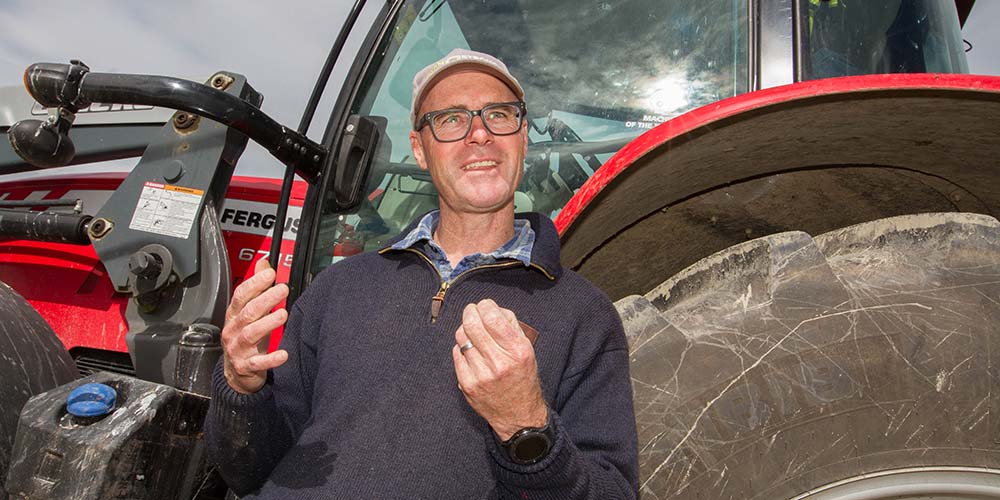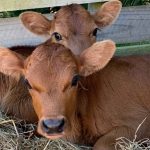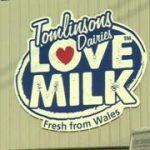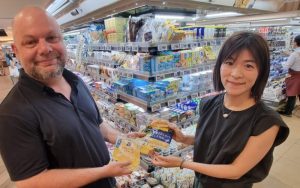
Richard Rennie spoke to farmer Richard Cookson, one of four thought leaders on the panel.
RICHARD Cookson describes himself as a Fonterra shareholder who became angry and even arrogant some years back after each encounter with the co-operative’s management.
Feeling increasingly distant from the co-operative his family has deep roots in, the contact left him feeling more cynical, ultimately retreating into a figurative shell on his family’s Te Aroha property.
“So no one was more surprised than I when I was asked to be part of Fonterra’s purpose programme,” he said.
The programme was instigated by Shareholders’ Council chairman Duncan Coull during the vacuum that effectively formed when late Fonterra chairman John Wilson stood down, about the same time as chief executive Theo Spierings.
“Duncan stepped into that and at our first meeting spoke about why Fonterra exists. He said we need to look at why we are here and our fundamental values. He had picked his moment and it took a lot of courage in that space 18 months ago.”
Backed by a tonne of qualitative data responses gathered from 2000 suppliers the panel became a conduit for the overarching shareholder mood.
The research had identified and mind mapped key words and thoughts, with those most prominent and positive including family and generational farming.
“Money was hardly ever the biggest part of it. It sat in the background. It was the feelings that were the elephant in the room.”
That also included a sense of discontent by suppliers who felt isolated and a yawning gap of disconnection from the co-operative they own.
The panel worked with Fonterra staff, exploring emotional pinch points Cookson believes took somewhat longer for staff to acknowledge and explore.
“But then that was because at this time Fonterra was a toxic place to be. They were wearing their Fonterra mask.”
One of the aha moments for the panel came when Fonterra was personified.
“I asked my group one day ‘I wonder who she (Fonterra) is?’
“They were all women and said ‘she’s not a woman, she’s always been a man. The ego and the arrogance to begin with, that’s not on us, that’s on you guys’.”
But Cookson maintained because Fonterra was engaged in the most feminine activity of all, milk production, she had to be personified as a female. Doing so would help better understand where she was at and how she regarded herself.
“And ultimately our customers at the other end are women who care and nurture their families.”
Taking the analogy further he maintained she was born from a loveless marriage of two iconic parties, namely Kiwi and NZ Dairy, joined unwillingly through DIRA.
That history also includes a failure to acknowledge the bitterness and sense of loss that accompanied many of the earlier amalgamations into Fonterra’s parents’ identities.
“You could say ‘get over it, that was ages ago’ but for many it meant a lot when they saw their Valley Milk or Bay Milk go that way and that hurt was not recognised.”
Today she is a slightly awry 18-year-old who has missed the chances to truly define her personality and direction in life at crucial periods of her growing up.
In short, she has been under-parented and it is time for her to come home.
“We have never really filled those voids with a sense of love and care. Instead, she was created to make money and become a corporate. Farmers and Fonterra employees fell into the void in this space.”
Cookson said personifying and acknowledging Fonterra’s birth and stumble into adolescence proved to be an emotional experience for many confronting it, sharpened for him by his sense of only ever having thrown stones at her.”
The void was only really filled with Trading Among Farmers, something Cookson voted for hoping it would create greater co-operative unity.
“But, really, we should have opened her up then and really discussed what it was we wanted this co-operative of ours to be. The problem was not really capital, it was values.”
The challenge now is for Fonterra to get lost suppliers back and remaining suppliers feeling valued, appreciated and trusted.
“It is a long road but if we can do it we will gain loyalty.”
He believes the need for quality leadership to achieve that has never been more critical and is buoyed by what he has seen and heard so far.
He welcomes how chief executive Miles Hurrell has moved to disband bonuses and executive pay hikes.
There is also word the co-op’s board is a more inclusive, welcoming place to be, so much so previous director Nicola Shadbolt wants back in.
And the way the recently announced national water quality proposals have largely been accepted by the co-operative reflects one better appreciating public values and perceptions.
Cookson believes the Fonterra he grew bitter about reflects a greater societal malaise.
That is one where everyone is looking out for themselves contrary to the co-operative ethos of looking out for each other.
His hope is by regaining that lost co-operative spirit Fonterra might even have the weight and stretch to recapture those values in society as a whole.






















